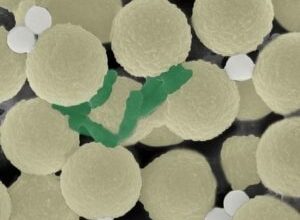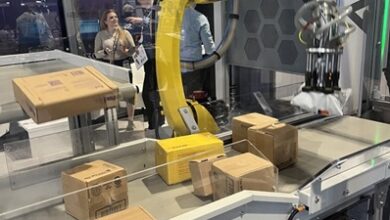Firefighting Robots And Animal-Free Eggs

This is a monthly column that runs down five interesting deals every month that may have flown under the radar. Check out our March entry here.
Spring is here, baseball’s back and days are longer, so it’s pretty easy to miss some of the more intriguing rounds announced by startups in April.
Don’t worry, we selected a quintet of eye-catching startups raising cash that will keep you up on what you may have missed in the past month.
Fighting fire with … robots?
California has seen 13 of the state’s 20 most destructive wildfires in history since 2017. Perhaps it’s not surprising, then, that a startup nestled in San Francisco is looking at ways to prevent such disasters.
BurnBot raised $20 million in financing led by ReGen Ventures last month. The robotics startup says it has developed remote-controlled vehicles — which look basically like a Zamboni — that can eat up and burn away plants or other dry vegetation that fuel destructive wildfires.
The idea is a good one as it tries to move the fire-prevention industry away from more dangerous or slow-moving solutions such as grazing away the vegetation with goats, burning it off or using toxic herbicides.
California aims to treat 1 million acres annually and the U.S. Forest Service has a goal of treating 50 million acres over the coming decade. Maybe a vegetation-eating Zamboni is just what’s needed.
Better diagnoses
All parents want what’s best for their children. But getting the right diagnoses and the proper care can be difficult the younger a child is, especially for developmental issues such as autism.
Decatur, Georgia-based EarliTec Diagnostics raised cash last month to help, locking up a $21.5 million Series B co-led by Nexus NeuroTech Ventures, which focuses on companies trying to treat brain disorders, and Venture Investors.
The startup says it can diagnose children as young as 16 months old. That’s important since studies suggest the earlier a child gets diagnosed the better the developmental outcomes.
EarliTech uses an FDA-authorized approach in which a child watches videos of social interactions on a screen and AI tracks the child’s eye movements to assess the level of function on characteristics of autism — social disability, verbal ability and nonverbal learning.
Autism is on the rise, with 1 in 36 children in the U.S. diagnosed with it — up from the previous rate of 1 in 44 — per the CDC. Getting earlier diagnoses may not stop that trend but could certainly help with care and development.
Animal-free eggs and ham?
Well, folks looking for animal-free eggs likely won’t be pairing them with ham, but they may soon be able to find such a thing more easily.
Helsinki-based Onego Bio raised a big $40 million round last month led by Japanese-Nordic VC NordicNinja. The startup aims to manufacture real egg protein entirely animal-free.
While animal-free meat has been a thing for a while, we are not as familiar with animal-free eggs. The startup uses fermentation to manufacture real egg protein entirely animal-free using their ingredient, Bioalbumen.
Onego claims the product results in identical taste and nutrition, and more than a 90% smaller environmental footprint, compared to eggs from chickens. The company plans to use the fresh cash to scale up its North American go-to-market strategy, so it may be in the grocery store aisles on this side of the Atlantic sooner rather than later.
Let it rain
This is definitely the first time two Finnish startups have made this list.
NPHarvest snatched up about $2.4 million in a round led by Nordic Foodtech VC. The Finland-based startup has developed hardware for the collection and recycling of nutrients from wastewaters such as rain. The company plans to use the cash to build its first commercially ready “Nutrient Catcher,” which will be installed at its clients’ facilities.
The startup says its treatment equipment is able to separate and collect all excess nutrients from wastewaters — mainly ammonia salt — which can then be recycled and used in fertilizer.
Getting the most out of wastewater to help with food insecurity isn’t necessarily a new idea, but this method is novel.
Breaking down plastic
Colossal Biosciences — which is trying to solve de-extinction — has made this list before, but now the Dallas-based unicorn is incubating companies making this list.
Breaking, a plastic degradation and synthetic biology company, launched in April and announced it’s already raised a $10.5 million seed round from the likes of Climate Capital, Carnrite Ventures, Builders VC and Animal Capital.
The Boston-based company says it has discovered a microbe, called X-32, that destroys multiple types of plastics by quickly breaking down hydrocarbon chains across different chemical structures.
According to the company, the microbe can degrade 90% of polyolefins, polyesters and polyamides — leaving behind carbon dioxide, water and biomass — in as little as 22 months.
Plastics are a growing environmental problem — 5 billion tons of plastic are sitting in landfills, oceans and our ecosystems, per Breaking — so a new microbe that can make it degrade faster may be part of the solution.
Related reading:
Illustration: Dom Guzman

Stay up to date with recent funding rounds, acquisitions, and more with the
Crunchbase Daily.



